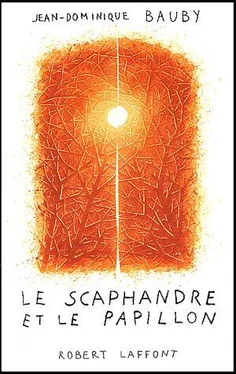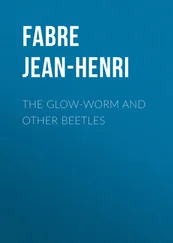Not many places in France still pay homage to Empress Eugénie. In the main hall of the Naval Hospital, a vast echoing space in which gurneys and wheelchairs can advance five abreast, a stained-glass window depicts the wife of Napoléon III, the hospital's patroness. The two chief curiosities of this mini-museum are a white marble bust, which restores her to the glory of her youth, and the letter in which the deputy stationmaster of Berck's railroad depot describes to the editor of the Correspondant Maritime the brief imperial visit of May 4, 1864. Through his words we clearly see the special train pull in carrying the troupe of young ladies of Eugénie's retinue, the joyful procession through the town, and the introduction of the hospital's little patients (Berck began life as a children's hospital) to their illustrious protectress. For a while I seized every chance I had to pay my respects to these relics.
A score of times I read the railwayman's account. I mingled with the chattering flock of ladies-in-waiting, and whenever Eugénie progressed from one ward to another, I followed her hat with its yellow ribbons, her silk parasol, and the scent of her passage, imbued with the eau de cologne of the court perfumer. On one particularly windy day, I even dared to draw near and bury my face in the folds of her white gauzy dress with its broad satin stripes. It was as sweet as whipped cream, as cool as the morning dew. She did not send me away. She ran her fingers through my hair and said gently, “There, there, my child, you must be very patient,” in a Spanish accent very like the neurologist's. She was no longer the empress of the French but a compassionate divinity in the manner of Saint Rita, patroness of lost causes.
And then one afternoon as I confided my woes to her likeness, an unknown face interposed itself between us. Reflected in the glass I saw the head of a man who seemed to have emerged from a vat of formaldehyde. His mouth was twisted, his nose damaged, his hair tousled, his gaze full of fear. One eye was sewn shut, the other goggled like the doomed eye of Cain. For a moment I stared at that dilated pupil, before I realized it was only mine.
Whereupon a strange euphoria came over me. Not only was I exiled, paralyzed, mute, half deaf, deprived of all pleasures, and reduced to the existence of a jellyfish, but I was also horrible to behold. There comes a time when the heaping up of calamities brings on uncontrollable nervous laughter—when, after a final blow from fate, we decide to treat it all as a joke. My jovial cackling at first disconcerted Eugénie, until she herself was infected by my mirth. We laughed until we cried. The municipal band then struck up a waltz, and I was so merry that I would willingly have risen and invited Eugénie to dance, had such a move been fitting. We would have whirled around miles of floor. Ever since then, whenever I go through the main hall, I detect a hint of amusement in the empress's smile.
The Naval Hospital must be a striking sight to the noisy light aircraft that buzz across the Berck shoreline at an altitude of three hundred feet. With its massive, overelaborate silhouette and the high redbrick walls typical of northern France, it seems to have foundered on the sands between the town and the gray waters of the Channel. On the facade of its most imposing annex, as on the front of schools and public baths in the French capital, are the words “City of Paris.” Created during the Second Empire for sick children in need of a climate healthier than that of Paris's hospitals, the annex has retained its extraterritorial status.
For while cold reality places us in the Pas de Calais region, as far as the medical bureaucracy is concerned we are still on the banks of the Seine.
Linked by endless corridors, the hospital buildings form an authentic maze, and one routinely runs into patients from Ménard hopelessly lost in Sorrel—wards named after eminent surgeons. Like children who have wandered from their mothers, these unfortunates mutter “I'm lost!” as they wobble about on their crutches. Being what the stretcher bearers call a “Sorrel,” I am more or less at home here, but the same cannot be said of newcomers. I could try to signal with my eyes whenever my wheelchair is pushed in the wrong direction, but I have taken to looking stonily ahead. There is always the chance that we will stumble upon some unknown corner of the hospital, see new faces, or catch a whiff of cooking as we pass. It was in this way that I came upon the lighthouse, on one of my very first expeditions in my wheelchair, shortly after swimming up from the mists of coma. As we emerged from an elevator on the wrong floor, I saw it: tall, robust, and reassuring, in red and white stripes that reminded me of a rugby shirt. I placed myself at once under the protection of this brotherly symbol, guardian not just of sailors but of the sick—those castaways on the shores of loneliness.
The lighthouse and I remain in constant touch, and I often call on it by having myself wheeled to Cinecittà, a region essential to my imaginary geography of the hospital. Cinecittà is the perpetually deserted terrace of Sorrel ward. Facing south, its vast balconies open onto a landscape heavy with the poetic and slightly offbeat charm of a movie set. The suburbs of Berck look like a model-train layout. A handful of buildings at the foot of the sand dunes gives the illusion of a Western ghost town. As for the sea, it foams such an incandescent white that it might be the product of the special-effects department.
I could spend whole days at Cinecittà. There, I am the greatest director of all time. On the town side, I reshoot the close-ups for Touch of Evil . Down at the beach, I rework the dolly shots for Stagecoach , and offshore I re-create the storm rocking the smugglers of Moonfleet . Or else I dissolve into the landscape and there is nothing more to connect me to the world than a friendly hand stroking my numb fingers. I am the hero of Godard's Pierrot le Fou , my face smeared blue, a garland of dynamite sticks encircling my head. The temptation to strike a match drifts by, like a cloud. And then it is dusk, when the last train sets out for Paris, when I have to return to my room. I wait for winter. Warmly wrapped up, we can linger here until nightfall, watch the sun set and the lighthouse take up the torch, its hope-filled beams sweeping the horizon.
After devoting itself to the care of young victims of a tuberculosis epidemic after the Second World War, Berck gradually shifted its focus away from children. Nowadays it tends to concentrate more on the sufferings of the aged, on the inevitable breakdown of body and mind; but geriatrics is only one part of the picture I must paint to give an accurate idea of the hospital's denizens. In one section are a score of comatose patients, patients at death's door, plunged into endless night. They never leave their rooms. Yet everyone knows they are there, and they weigh strangely on our collective awareness, almost like a guilty conscience. In another wing, next door to the colony of elderly and enfeebled, is a cluster of morbidly obese patients whose substantial dimensions the doctors hope to whittle down. Elsewhere, a battalion of cripples forms the bulk of the inmates. Survivors of sport, of the highway, and of every possible and imaginable kind of domestic accident, these patients remain at Berck for as long as it takes to get their shattered limbs working again. I call them “tourists.”
And to complete the picture, a niche must be found for us, broken-winged birds, voiceless parrots, ravens of doom, who have made our nest in a dead-end corridor of the neurology department. Of course, we spoil the view. I am all too conscious of the slight uneasiness we cause as, rigid and mute, we make our way through a group of more fortunate patients.
Читать дальше












